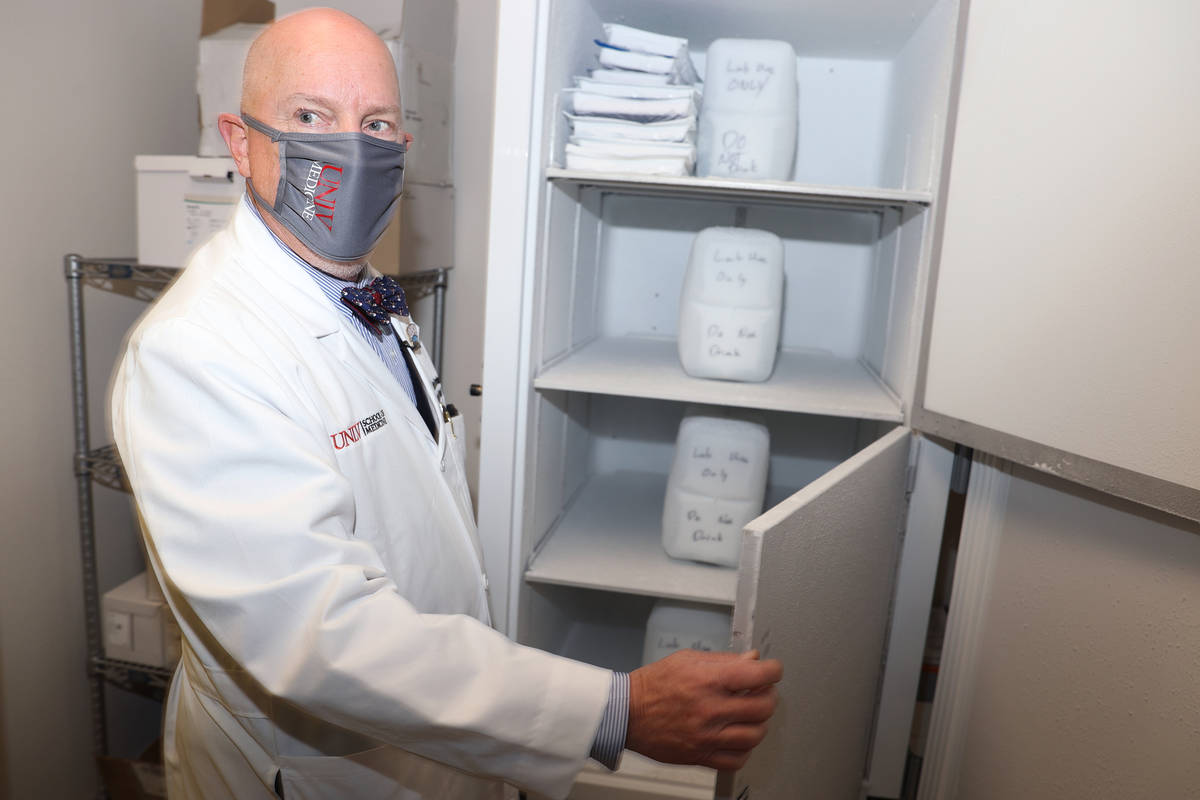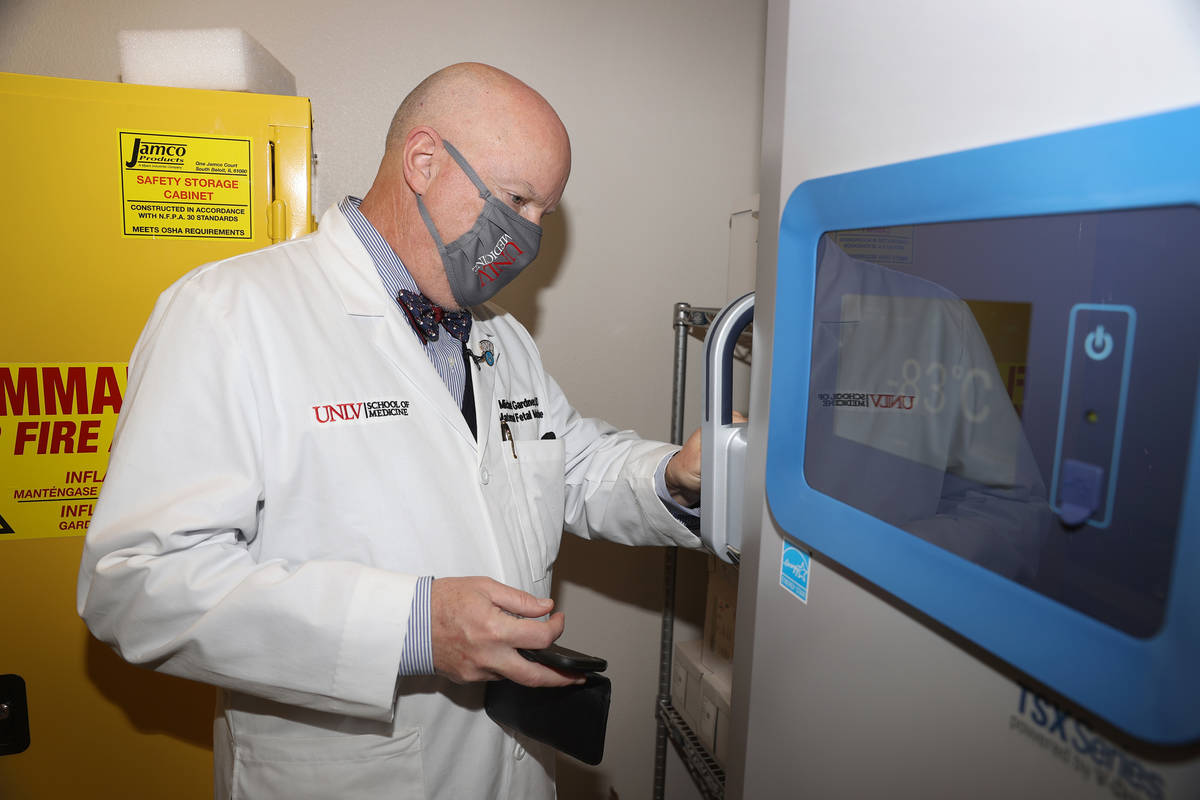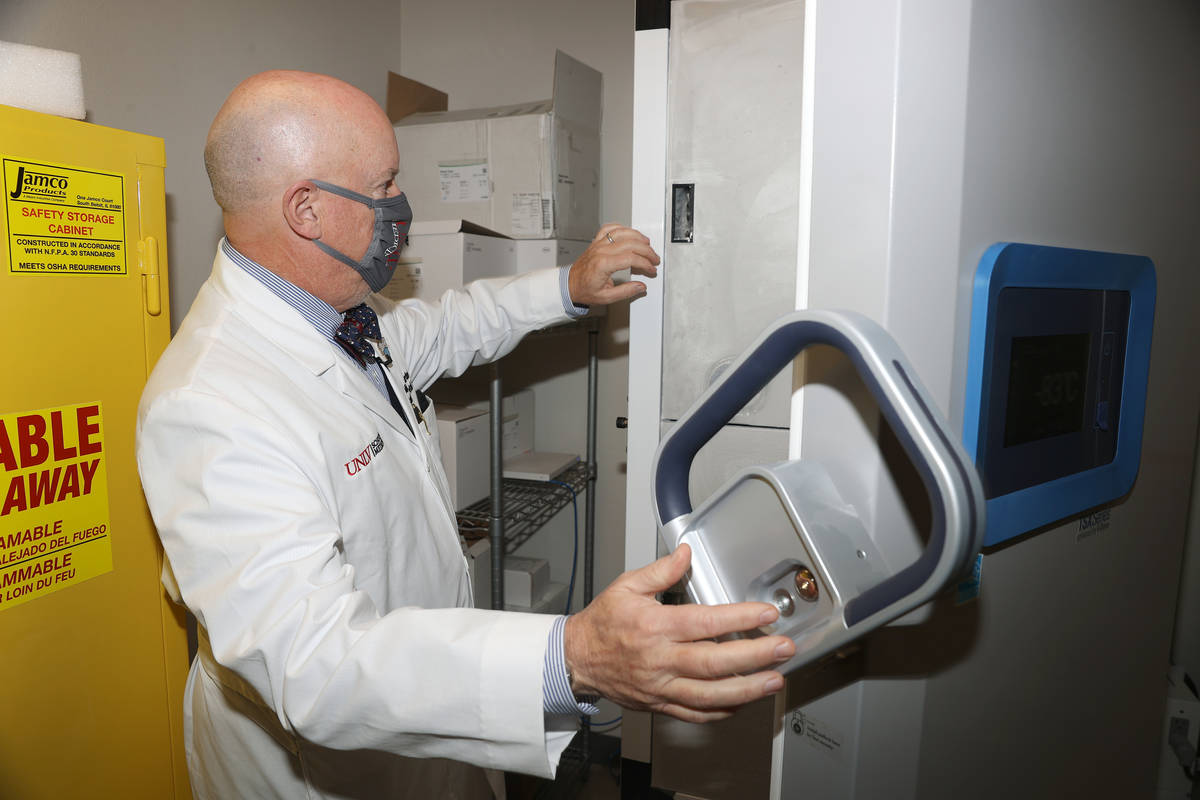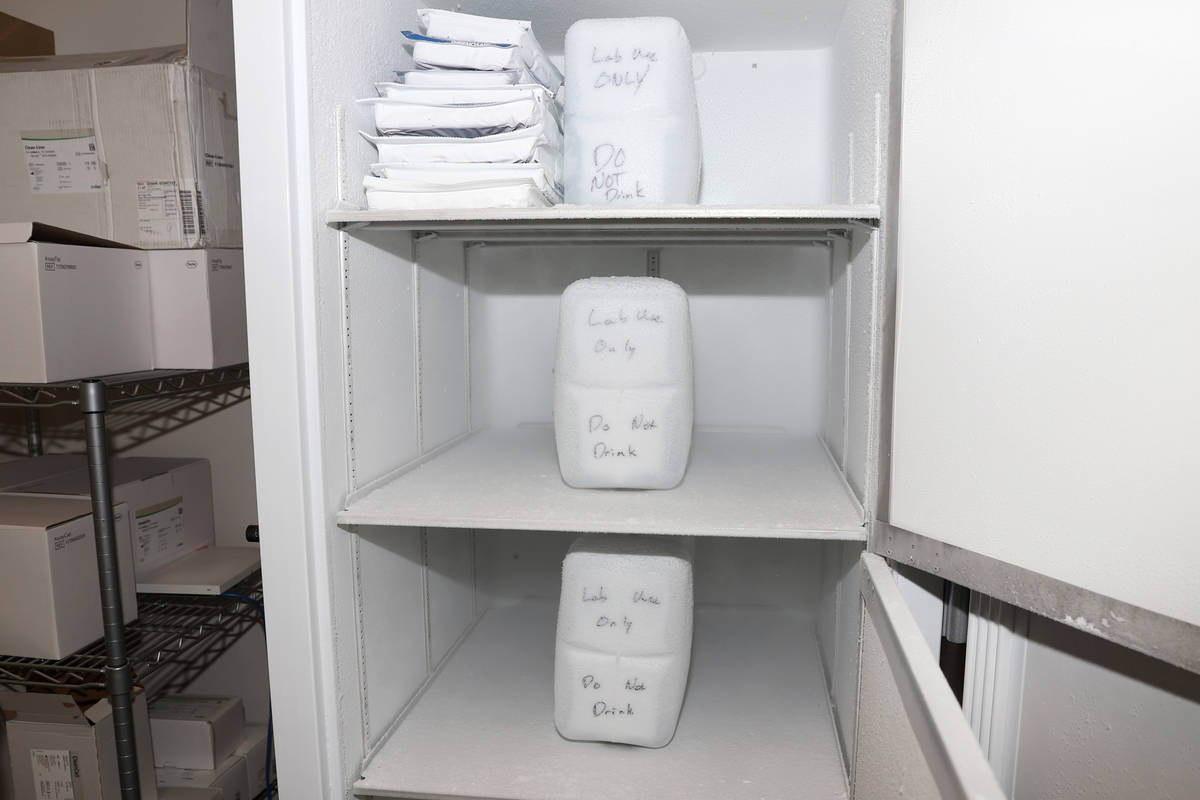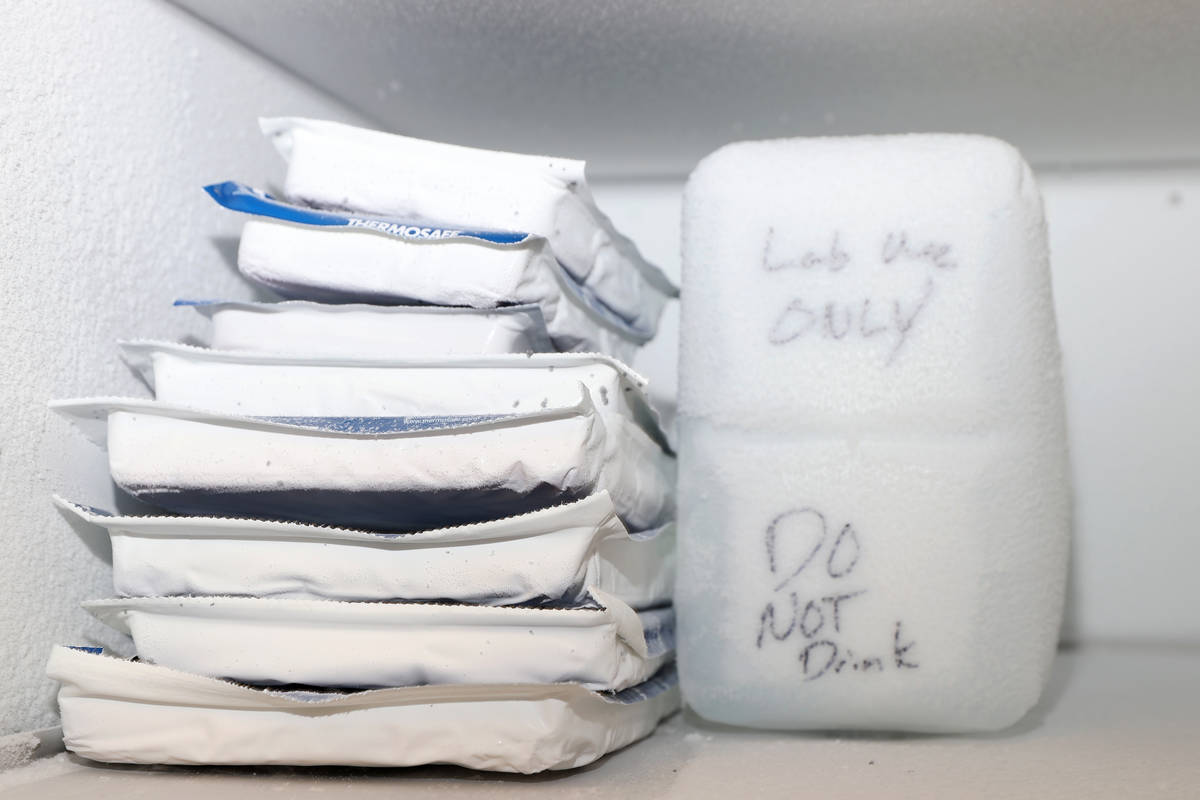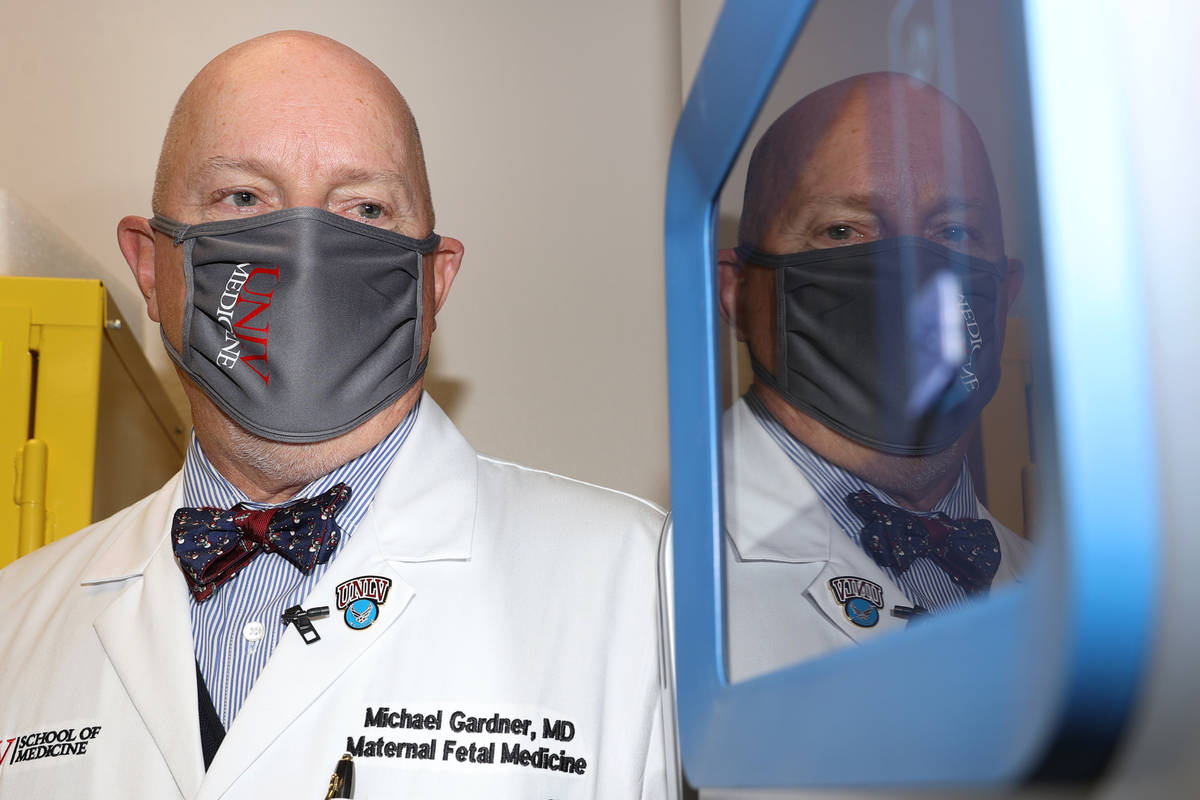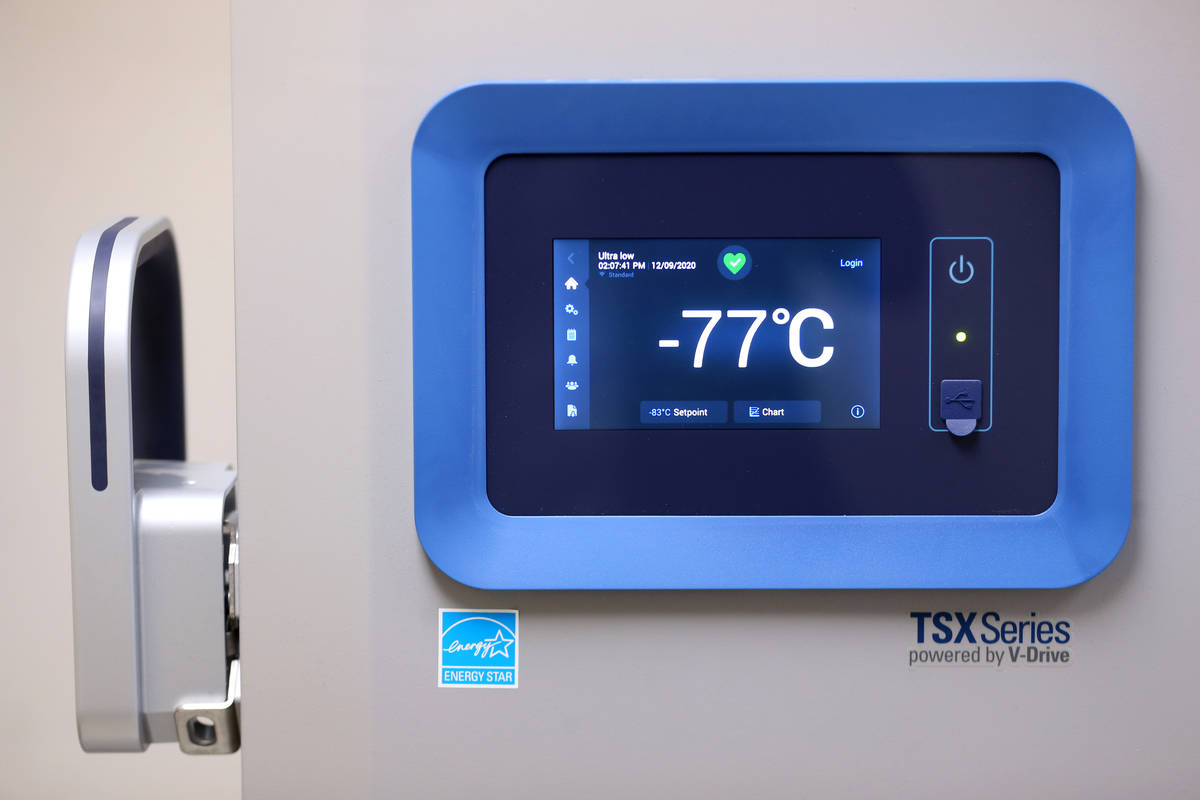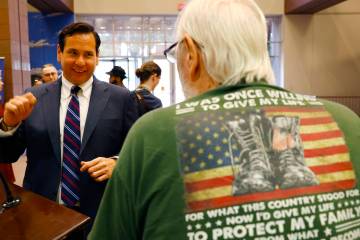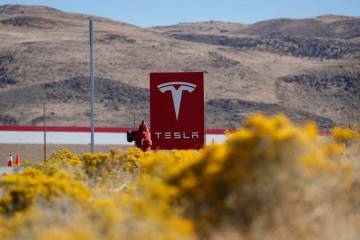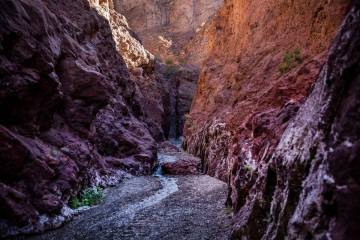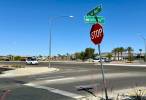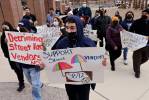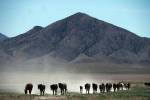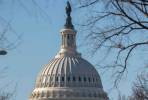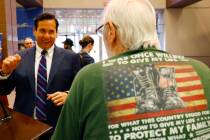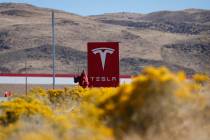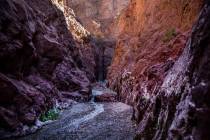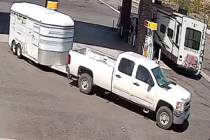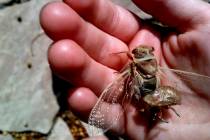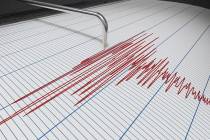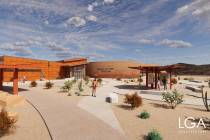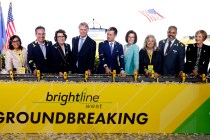Nevada prepares for distribution of COVID-19 vaccine on Monday
With the first COVID-19 vaccine expected to arrive in Nevada on Monday, state public health officials are making final preparations to distribute doses across the state and begin giving them to health care workers.
Pfizer Inc. began shipping the vaccine on Sunday, according to Army Gen. Gustave Perna of Operation Warp Speed, the Trump administration’s vaccine development program. UPS and FedEx were expected to deliver the vaccine to nearly 150 distribution centers across the nation on Monday, with an additional 425 sites getting shipments Tuesday, and the remaining 66 on Wednesday.
“We anticipate receiving the first shipment in the state on Monday,” Nevada Gov. Steve Sisolak said at a virtual news conference Sunday afternoon. The state expects to receive more than 23,000 doses this week.
“The state team has worked closely with our partners, and plans are in place to distribute the first allocation of the Pfizer vaccine for our frontline health care workers, for immediate vaccination of staff and residents in our nursing skilled facilities, as soon as possible,” he said.
A workgroup formed by California, Nevada, Oregon and Washington completed its review of the federal process on Sunday and confirmed the Pfizer vaccine is “safe and efficacious,” according to a news release from Sisolak’s office earlier in the day.
Western states confirm safety
Sisolak said at the news conference that the added layer of scrutiny should reassure anyone with safety concerns.
“I would have no problem … (with) my mother, my sister, my friends, my wife, anyone getting the vaccine,” he said. “I have confidence in the safety and efficacy of the vaccine.”
Acute-care hospital staff will be among the first to receive the Pfizer Inc. vaccine, followed by residents and staff at long-term care facilities such as nursing homes and assisted living communities. Other health care workers, as well as those in critical operations and at increased risk of exposure such as law enforcement and emergency services personnel, are among those next in line for the limited doses of vaccine anticipated this month.
“We have worked with partners statewide to ensure there’s a vetted, tested process to move the vaccines to communities statewide,” said Candice McDaniel, the Nevada Department of Health and Human Services official charged with leading the state’s COVID-19 vaccination effort.
The state has conducted a full-scale exercise to test the system for delivering vaccine across Nevada, McDaniel said during a telephone briefing for reporters on Friday. Citing security concerns, she did not disclose details of the delivery plan.
Initial doses of vaccine for Clark County will be sent directly to the Southern Nevada Health District, JoAnn Rupiper, the district’s director of clinical services, said Thursday.
“We’re receiving some information from our community partners and from the states that there may be some security issues,” Rupiper said. Asked if the vaccine would be under guard watch, she said, “I would say we have security personnel along.”
Ultra-cold storage
The already daunting task of delivering and administering vaccines across the state is made more challenging by a requirement of the Pfizer vaccine that it be kept at temperatures of -70 degrees Celsius (-94 degrees Fahrenheit).
Pfizer said it has designed temperature-controlled thermal shippers that use dry ice to maintain the proper temperature for the vaccine. The company plans to ship the vaccine by air to major regional hubs and then use ground transportation to distribute it to communities.
According to the company, it is using GPS-enabled thermal sensors to track the location and temperature of each vaccine shipment. The Pfizer thermal shippers can be used as temporary storage units for up to 30 days as long as they are periodically replenished with dry ice.
Part of the public health planning process has been to identify ultra-cold freezers across the state for storage of the vaccine, which can be found in hospital laboratories. Typical vaccines do not require storage at such low temperatures.
An anonymous donor has provided an ultra-cold freezer to UNLV Medicine, the medical practice of UNLV’s School of Medicine. UNLV Medicine has signed agreements with the state to both store and help distribute the vaccine, said President and CEO Dr. Michael Gardner.
The freezer, which isn’t much larger than a standard refrigerator, can store about 50,000 doses of vaccine, Gardner said.
A COVID-19 vaccine by Moderna Inc. that is expected to be authorized for emergency use as soon as this week does not require storage at such low temperatures. The U.S. biotech company said that its vaccine can be shipped and stored for up to six months at -20 degrees Celsius (-4 degrees Fahrenheit). After thawing, it can be kept for 30 days in “normal refrigerator conditions,” according to the company.
The Moderna vaccine is more likely to be used in rural parts of the state, where the storage conditions required for the Pfizer vaccine could be harder to achieve, said Dr. Andy Pasternak, president-elect of the Nevada State Medical Association.
“It’s going to take some time for the state of Nevada — for the entire country — to get a vaccine,” Sisolak said Sunday. “We need to be as patient as we can along the way.”
Contact Mary Hynes at mhynes@reviewjournal.com or 702-383-0336. Follow @MaryHynes1 on Twitter. The Associated Press contributed to this report.



